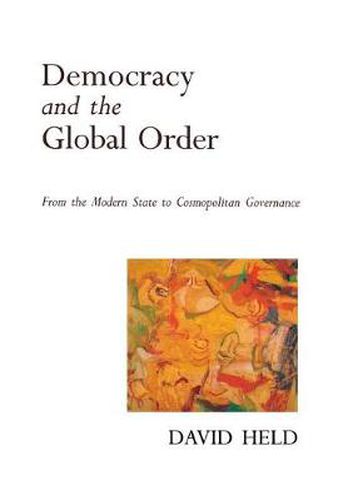Readings Newsletter
Become a Readings Member to make your shopping experience even easier.
Sign in or sign up for free!
You’re not far away from qualifying for FREE standard shipping within Australia
You’ve qualified for FREE standard shipping within Australia
The cart is loading…






Democracy is the most potent political idea in the world today, yet the future of democracy is increasingly uncertain. Key assumptions of democratic thinking and practice are being undermined by diverse sites of social economic power on the one hand, and by dense networks of regional and global interconnectedness on the other. States and societies are enmeshed in webs of international conditions and processes as never before. Democracy and the Global Order offers a highly original and systematic account of these issues. Part I assesses the traditional conceptions of democracy. Part II traces the rise and displacement of the modern nation-state in the context of the interstate system and the world economy. Part III explores the theoretical bases of democracy and of the democratic state, and the profound changes these concepts must undergo if they are to retain their relevance in the century ahead. Finally. Part IV champions a cosmopolitan model of democracy-a new conception of democracy for a new world order.
$9.00 standard shipping within Australia
FREE standard shipping within Australia for orders over $100.00
Express & International shipping calculated at checkout
Democracy is the most potent political idea in the world today, yet the future of democracy is increasingly uncertain. Key assumptions of democratic thinking and practice are being undermined by diverse sites of social economic power on the one hand, and by dense networks of regional and global interconnectedness on the other. States and societies are enmeshed in webs of international conditions and processes as never before. Democracy and the Global Order offers a highly original and systematic account of these issues. Part I assesses the traditional conceptions of democracy. Part II traces the rise and displacement of the modern nation-state in the context of the interstate system and the world economy. Part III explores the theoretical bases of democracy and of the democratic state, and the profound changes these concepts must undergo if they are to retain their relevance in the century ahead. Finally. Part IV champions a cosmopolitan model of democracy-a new conception of democracy for a new world order.